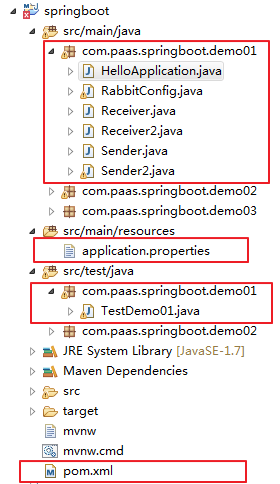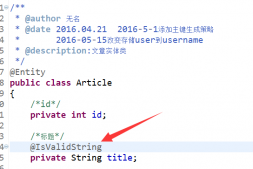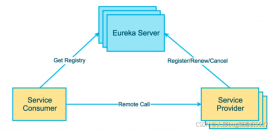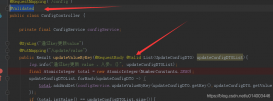闲话
好久没有写博客了,6月份毕业,因为工作原因,公司上网受限,一直没能把学到的知识点写下来,工作了半年,其实学到的东西也不少,但是现在回忆起来的东西少之又少,有时甚至能在同个问题中踩了几次,越来越觉得及时记录一下学到的东西很重要。
好了,闲话少说,写下这段时间学习的东西,先记录一下用spring Boot配置多个RabbitMQ的情况。。。
最近公司新启动一个新平台的项目,需要用微服务这个这几年很火的概念来做,所以就学习了Spring Boot方面的知识,给同事展示Spring Boot的一些小事例的时候,同事提出了可不可以配置多个RabbitMQ?下面就是在Spring Boot配置多个RabbitMQ的例子。是自己摸索搭建的,也不知道对不对,有其他好的实现方法的网友可以互相交流一下。
项目代码构造

关注点在红框的代码。。。
代码
下面就把项目的代码展示下来
application.properties
配置文件
|
1
2
3
4
5
6
7
8
9
10
11
12
13
14
15
16
17
18
19
|
spring.application.name=rabbitmq-hello# RabbitMQspring.rabbitmq.first.host=node9spring.rabbitmq.first.port=5670spring.rabbitmq.first.username=guestspring.rabbitmq.first.password=guestspring.rabbitmq.second.host=localhostspring.rabbitmq.second.port=5672spring.rabbitmq.second.username=guestspring.rabbitmq.second.password=guest# MySQLspring.datasource.url = jdbc:mysql://localhost:3306/cloudtestspring.datasource.username = rootspring.datasource.password = rootspring.datasource.driverClassName = com.mysql.jdbc.Driver |
HelloApplication.java
程序入口
|
1
2
3
4
5
6
7
8
9
10
11
12
13
|
package com.paas.springboot.demo01;import org.springframework.boot.SpringApplication;import org.springframework.boot.autoconfigure.SpringBootApplication;@SpringBootApplicationpublic class HelloApplication { public static void main(String[] args) { SpringApplication.run(HelloApplication.class, args); }} |
RabbitConfig.java
RabbitMQ配置类
|
1
2
3
4
5
6
7
8
9
10
11
12
13
14
15
16
17
18
19
20
21
22
23
24
25
26
27
28
29
30
31
32
33
34
35
36
37
38
39
40
41
42
43
44
45
46
47
48
49
50
51
52
53
54
55
56
57
58
59
60
61
62
63
64
65
66
67
68
69
70
71
72
73
74
75
76
77
78
79
80
81
82
83
84
85
86
87
88
89
90
91
92
93
94
95
96
97
|
package com.paas.springboot.demo01;import org.springframework.amqp.core.Queue;import org.springframework.amqp.rabbit.config.SimpleRabbitListenerContainerFactory;import org.springframework.amqp.rabbit.connection.CachingConnectionFactory;import org.springframework.amqp.rabbit.connection.ConnectionFactory;import org.springframework.amqp.rabbit.core.RabbitTemplate;import org.springframework.beans.factory.annotation.Qualifier;import org.springframework.beans.factory.annotation.Value;import org.springframework.boot.autoconfigure.amqp.SimpleRabbitListenerContainerFactoryConfigurer;import org.springframework.context.annotation.Bean;import org.springframework.context.annotation.Configuration;import org.springframework.context.annotation.Primary;@Configurationpublic class RabbitConfig { @Bean(name="firstConnectionFactory") @Primary public ConnectionFactory firstConnectionFactory( @Value("${spring.rabbitmq.first.host}") String host, @Value("${spring.rabbitmq.first.port}") int port, @Value("${spring.rabbitmq.first.username}") String username, @Value("${spring.rabbitmq.first.password}") String password ){ CachingConnectionFactory connectionFactory = new CachingConnectionFactory(); connectionFactory.setHost(host); connectionFactory.setPort(port); connectionFactory.setUsername(username); connectionFactory.setPassword(password); return connectionFactory; } @Bean(name="secondConnectionFactory") public ConnectionFactory secondConnectionFactory( @Value("${spring.rabbitmq.second.host}") String host, @Value("${spring.rabbitmq.second.port}") int port, @Value("${spring.rabbitmq.second.username}") String username, @Value("${spring.rabbitmq.second.password}") String password ){ CachingConnectionFactory connectionFactory = new CachingConnectionFactory(); connectionFactory.setHost(host); connectionFactory.setPort(port); connectionFactory.setUsername(username); connectionFactory.setPassword(password); return connectionFactory; } @Bean(name="firstRabbitTemplate") @Primary public RabbitTemplate firstRabbitTemplate( @Qualifier("firstConnectionFactory") ConnectionFactory connectionFactory ){ RabbitTemplate firstRabbitTemplate = new RabbitTemplate(connectionFactory); return firstRabbitTemplate; } @Bean(name="secondRabbitTemplate") public RabbitTemplate secondRabbitTemplate( @Qualifier("secondConnectionFactory") ConnectionFactory connectionFactory ){ RabbitTemplate secondRabbitTemplate = new RabbitTemplate(connectionFactory); return secondRabbitTemplate; } @Bean(name="firstFactory") public SimpleRabbitListenerContainerFactory firstFactory( SimpleRabbitListenerContainerFactoryConfigurer configurer, @Qualifier("firstConnectionFactory") ConnectionFactory connectionFactory ) { SimpleRabbitListenerContainerFactory factory = new SimpleRabbitListenerContainerFactory(); configurer.configure(factory, connectionFactory); return factory; } @Bean(name="secondFactory") public SimpleRabbitListenerContainerFactory secondFactory( SimpleRabbitListenerContainerFactoryConfigurer configurer, @Qualifier("secondConnectionFactory") ConnectionFactory connectionFactory ) { SimpleRabbitListenerContainerFactory factory = new SimpleRabbitListenerContainerFactory(); configurer.configure(factory, connectionFactory); return factory; } @Bean public Queue firstQueue() { System.out.println("configuration firstQueue ........................"); return new Queue("hello1"); } @Bean public Object secondQueue() { System.out.println("configuration secondQueue ........................"); return new Queue("hello2"); }} |
Receiver.java
RabbitMQ中的消费者,接收first RabbitMQ中的队列hello1的数据
|
1
2
3
4
5
6
7
8
9
10
11
12
13
14
15
16
|
package com.paas.springboot.demo01;import org.springframework.amqp.rabbit.annotation.RabbitHandler;import org.springframework.amqp.rabbit.annotation.RabbitListener;import org.springframework.stereotype.Component;@Component@RabbitListener(queues = "hello1", containerFactory="firstFactory")public class Receiver { @RabbitHandler public void process(String hello) { System.out.println("Receiver : " + hello); }} |
Receiver2.java
RabbitMQ中的消费者,接收second RabbitMQ中的队列hello2的数据
|
1
2
3
4
5
6
7
8
9
10
11
12
13
14
15
16
|
package com.paas.springboot.demo01;import org.springframework.amqp.rabbit.annotation.RabbitHandler;import org.springframework.amqp.rabbit.annotation.RabbitListener;import org.springframework.stereotype.Component;@Component@RabbitListener(queues = "hello2", containerFactory="secondFactory" )public class Receiver2 { @RabbitHandler public void process(String hello) { System.out.println("Receiver : " + hello); }} |
Sender.java
RabbitMQ中的生产者,发送消息到first RabbitMQ中的队列hello1和hello2
|
1
2
3
4
5
6
7
8
9
10
11
12
13
14
15
16
17
18
19
20
21
22
23
24
25
26
|
package com.paas.springboot.demo01;import java.util.Date;import javax.annotation.Resource;import org.springframework.amqp.rabbit.core.RabbitTemplate;import org.springframework.stereotype.Component;@Componentpublic class Sender { @Resource(name="firstRabbitTemplate") private RabbitTemplate firstRabbitTemplate; public void send1() { String context = "hello1 " + new Date(); System.out.println("Sender : " + context); this.firstRabbitTemplate.convertAndSend("hello1", context); } public void send2() { String context = "hello2 " + new Date(); System.out.println("Sender : " + context); this.firstRabbitTemplate.convertAndSend("hello2", context); }} |
Sender2.java
RabbitMQ中的生产者,发送消息到second RabbitMQ中的队列hello1和hello2
|
1
2
3
4
5
6
7
8
9
10
11
12
13
14
15
16
17
18
19
20
21
22
23
24
25
26
|
package com.paas.springboot.demo01;import java.util.Date;import javax.annotation.Resource;import org.springframework.amqp.rabbit.core.RabbitTemplate;import org.springframework.stereotype.Component;@Componentpublic class Sender { @Resource(name="firstRabbitTemplate") private RabbitTemplate firstRabbitTemplate; public void send1() { String context = "hello1 " + new Date(); System.out.println("Sender : " + context); this.firstRabbitTemplate.convertAndSend("hello1", context); } public void send2() { String context = "hello2 " + new Date(); System.out.println("Sender : " + context); this.firstRabbitTemplate.convertAndSend("hello2", context); }} |
TestDemo01.java
测试类,调用Sender发送消息
|
1
2
3
4
5
6
7
8
9
10
11
12
13
14
15
16
17
18
19
20
21
22
23
24
25
26
27
28
29
30
|
package com.paas.springboot.demo01;import org.junit.Test;import org.junit.runner.RunWith;import org.springframework.beans.factory.annotation.Autowired;import org.springframework.boot.test.SpringApplicationConfiguration;import org.springframework.test.context.junit4.SpringJUnit4ClassRunner;@RunWith(SpringJUnit4ClassRunner.class)@SpringApplicationConfiguration(classes = HelloApplication.class)public class TestDemo01 { @Autowired private Sender sender; @Autowired private Sender2 sender2; @Test public void hello() throws Exception { sender.send1(); sender.send2(); } @Test public void hello2() throws Exception { sender2.send1(); sender2.send2(); }} |
pom.xml
Maven项目中最重要的一个配置文件
|
1
2
3
4
5
6
7
8
9
10
11
12
13
14
15
16
17
18
19
20
21
22
23
24
25
26
27
28
29
30
31
32
33
34
35
36
37
38
39
40
41
42
43
44
45
46
47
48
49
50
51
52
53
54
55
56
57
58
59
60
61
62
63
64
65
66
67
68
69
70
71
72
73
74
75
76
77
78
79
|
<project xmlns="http://maven.apache.org/POM/4.0.0" xmlns:xsi="http://www.w3.org/2001/XMLSchema-instance" xsi:schemaLocation="http://maven.apache.org/POM/4.0.0 http://maven.apache.org/maven-v4_0_0.xsd"> <modelVersion>4.0.0</modelVersion> <groupId>com.paas.springboot.demo</groupId> <artifactId>springboot</artifactId> <packaging>war</packaging> <version>0.0.1-SNAPSHOT</version> <name>springboot Maven Webapp</name> <url>http://maven.apache.org</url> <parent> <groupId>org.springframework.boot</groupId> <artifactId>spring-boot-starter-parent</artifactId> <version>1.4.3.RELEASE</version> <relativePath /> <!-- lookup parent from repository --> </parent> <dependencies> <dependency> <groupId>junit</groupId> <artifactId>junit</artifactId> <scope>test</scope> </dependency> <dependency> <groupId>org.springframework.boot</groupId> <artifactId>spring-boot-starter-amqp</artifactId> </dependency> <dependency> <groupId>org.springframework.boot</groupId> <artifactId>spring-boot-starter-actuator</artifactId> </dependency> <dependency> <groupId>org.springframework.boot</groupId> <artifactId>spring-boot-starter-web</artifactId> </dependency> <dependency> <groupId>org.springframework.boot</groupId> <artifactId>spring-boot-starter-jdbc</artifactId> </dependency> <dependency> <groupId>org.springframework.boot</groupId> <artifactId>spring-boot-starter-test</artifactId> <scope>test</scope> </dependency> <dependency> <groupId>com.jayway.jsonpath</groupId> <artifactId>json-path</artifactId> <scope>test</scope> </dependency> <dependency> <groupId>mysql</groupId> <artifactId>mysql-connector-java</artifactId> </dependency> </dependencies> <build> <finalName>springboot</finalName> <plugins> <plugin> <groupId>org.springframework.boot</groupId> <artifactId>spring-boot-maven-plugin</artifactId> </plugin> </plugins> </build> <repositories> <repository> <id>spring-releases</id> <url>https://repo.spring.io/libs-release</url> </repository> </repositories> <pluginRepositories> <pluginRepository> <id>spring-releases</id> <url>https://repo.spring.io/libs-release</url> </pluginRepository> </pluginRepositories></project> |
运行&测试
通过运行HelloApplication.Java,将程序中的Receiver启动一直监控着队列,然后通过运行TestDemo01.java中的测试案例,发送消息到队列中,这时可以发现运行HelloApplication的程序控制台将刚刚发送的消息打印出来
以上就是本文的全部内容,希望对大家的学习有所帮助,也希望大家多多支持服务器之家。
原文链接:https://1csh1.github.io/2017/01/19/Spring%20Boot%20%E9%85%8D%E7%BD%AE%E5%A4%9A%E4%B8%AARabbitMQ/















